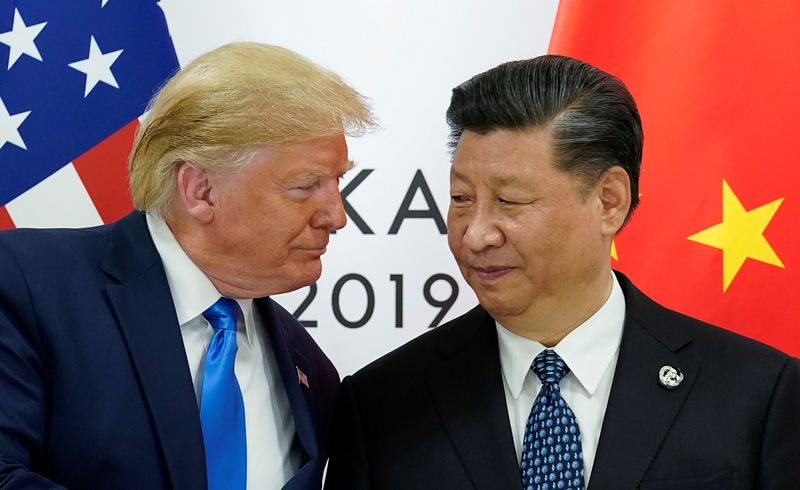Goldman Sachs expects Nvidia ’beat and raise,’ lifts price target to $240
Investing.com -- The recent Xi-Trump meeting offered Beijing temporary breathing space to manage its decoupling from the U.S. at a more deliberate pace, though the fundamental rift between the two powers remains intact, according to Capital Economics.
The macroeconomic research firm said the reversal of some U.S. tariffs will have only a modest economic impact but removes the immediate threat of larger hikes that could have shaved up to 2% off China’s GDP. It noted that Chinese exporters had “largely shrugged off” existing tariffs, so the immediate economic boost from the latest cut will be limited.
China’s Ministry of Commerce confirmed that Washington had cut tariffs on fentanyl-related goods from 20% to 10% and postponed its probe into China’s shipbuilding industry.
President Donald Trump also hinted at a potential easing of U.S. export restrictions on Nvidia chips, though not the most advanced Blackwell models.
“The de-escalation takes the immediate threat of large tariff hikes off the table, removing a key downside risk to the near-term outlook,” said Julian Evans-Pritchard, Head of China Economics at Capital Economics.
The scrapping of Trump’s threatened 100% tariff hike — which Capital Economics said could have lowered GDP by up to 2% — further reduces near-term risks.
The U.S. also temporarily revoked the Bureau of Industry and Security’s entity list affiliate rule, significantly reducing the number of Chinese firms subject to sanctions, while China agreed to increase U.S. agricultural imports and delay new export controls by one year.
Despite the concessions, the average U.S. tariff rate on China remains around 30%, three times higher than before Trump’s return to office.
Capital Economics estimates that reversing part of this year’s tariff hikes would boost GDP by only 0.1%, as any currency appreciation could offset gains.
Trump suggested the agreements could lead to a broader “trade deal” to be signed when he visits Beijing in April. The deadline for U.S. tariffs to snap back to 34% has been extended for a year, signaling that both sides intend to keep tensions in check. His visit next spring “seems like the obvious setting to formalise a deal,” Evans-Pritchard said.
Still, the economist cautioned that “it would be unwise to rule out a renewed rupture in U.S.-China relations,” noting that geopolitical risks remain unpredictable.
Even if a deal materializes, Evans-Pritchard expects it to mirror the Phase One agreement—China committing to buy more U.S. goods in exchange for tariff relief—rather than a genuine reset of relations. He said such an outcome “wouldn’t alter the underlying geopolitical forces that are causing the world economy to fracture into two competing blocs.”
While Beijing may have bought time, both sides are pressing ahead with decoupling. The U.S. is deepening supply chain partnerships through new critical mineral pacts and investments in domestic shipyards.
Meanwhile, China’s next Five-Year Plan emphasizes technological self-reliance and a more “independent and controllable” financial system.
